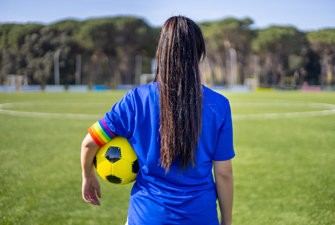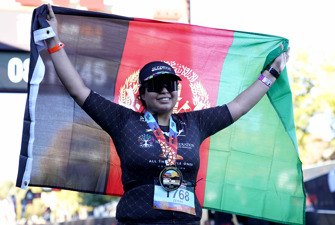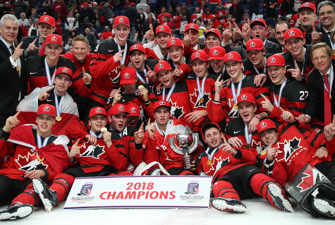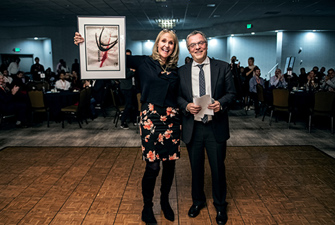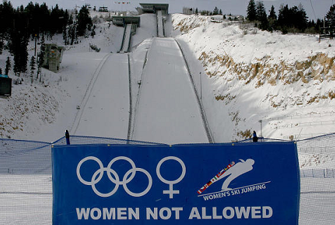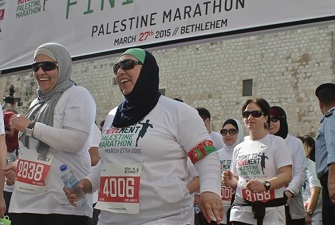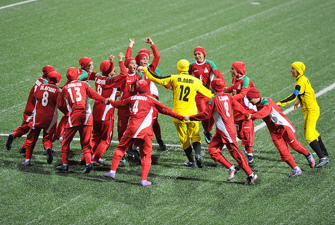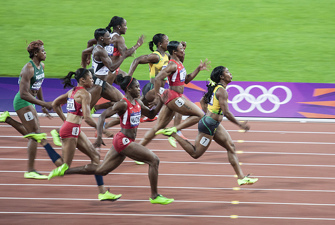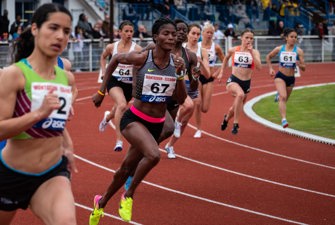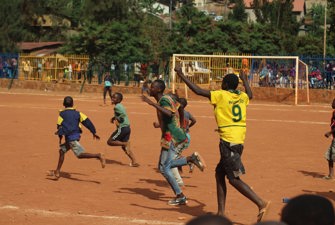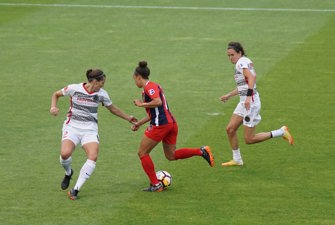A Middle East Female Sports Revolution?
Comment: Al-Jazeera has called the current uprisings in the Middle East a feminist revolution. The news channel also argues that women’s participation has made the protests more peaceful than they might have been otherwise. Could the happenings in the Middle East also spill over into sport?
Few female role models
Female role models in sports are few in this part of the world. In the biggest championships few women represent and/or do well in sports at the highest level. Barely a handful of winners are born in this part of the world.
Moroccan Nawal El Moutawakel won Olympic gold in the 400m hurdles at the Olympics in Los Angeles in 1984. She was the first African-born Muslim who managed such a feat. In 1995, Ghada Shouaa from Syria won the World Championship gold in heptathlon, a feat she repeated at the Olympics in Atlanta in 1996. These two are among the few great female athletes from the Middle East, born in the countries they represent.
This does not mean that Middle Eastern women do not participate. In the Asian Games in China last year, there were large numbers of women competing. Iran, for example, had 92 female participants, Qatar 56 and Jordan 32. However, we can still talk of a glass ceiling for female athletes in this part of the world.
Saudi Arabia bottom of the list
Worst is Saudi Arabia. They did not send a single female athlete to the Summer Asian Games in China last year. Nor have they ever sent female athletes to the Olympics.
Second worst in the 2010 Asia Games was Oman participating with only one woman, the tennis player; Fatma Al Nabhani. It is ironic that Saudi Arabia in 2010 obtained board membership in the UN's newly formed women's agency UN Women – at the expense of Iran. They were certainly not awarded the post because of good work on women in sports.
It remains to be seen whether the UN body can influence Saudi Arabia in the right direction, or whether Saudi Arabia will affect the agency in its hostility towards women in sports?
Will horses break the glass ceiling?
But there are rays of hope for women in Saudi Arabia and elsewhere. At the moment they are to be found within equestrian sports. Ahead of the Olympics in Beijing, Saudi Arabia had their first female representative in an Olympic delegation when Arwa Mutabagani worked as coach for the Saudi Arabian equestrians.
Equally encouraging is the fact that Dalma Rushdi H Malhas won bronze in equestrian at the Youth Olympics in Singapore last year. It seems that this sport has a great stake among women in the Middle East. Most visible through Princess Haya of Jordan who is the President of the International Federation for Equestrian sports (FEI). Last year she was re-elected as president for another four years.
Iran and FIFA
On the gender issue we also have to bear the policies of the international sports organisations in mind. The conflict between Iran and FIFA prior to the Youth Olympics last year indicates why. The conflict began when FIFA refused Iranian girls to wear hijab during matches.
Due to this prohibition the Iranian Football Federation appealed to five international federations, including the IOC, to get the ban lifted. The argument was that Muslim women must always wear headscarves, even on the football pitch. FIFA's reasoning for denying the hijab was that FIFA does not allow any religious headgear (Rule 4). In this case, it could seem that the frontlines between the Muslim world and FIFA were firmly locked. This is - at best - only half true. This gives us room for hope.
Both parties are wrong
Firstly, it is not so that all female Muslim sports teams wear headgear. It is rather the exception. Different countries and different groups of Muslims interpret the use of hijab differently.
Secondly, there are many international sport federations that allow the hijab and several international matches are played with players wearing hijab. In other words, there are no absolutes in this case.
The first case about the hijab in football was in 2007, when 11-year-old Asmahan Mansour received a ban in Canada because she was wearing hijab while playing. The reason was security. They did not want her to suffocate if someone pulled her headscarf. This case has in many ways set a precedent for FIFA.
On the other hand, matches have been played with women wearing hijab. In last year's South Asian Games the Pakistani team played with very fashionable headgear, and in the match between Jordan and Palestine in November 2008, the Jordanian team played with headgear. This is just two of several examples and both had FIFA's approval. Why was it so hard to play with headscarves in Singapore?
Sport is too important?
The Iranian struggle for the use of jihab in football should be seen as part of the Iranian struggle for international recognition, both in politics and sport. But so far it does not look like Iran has succeeded. The most striking is not that they face opposition in the international sports world, but rather that they do not get strong support from other Muslim countries. This can be interpreted in two ways. Either that sport is too important to let the hijab issue disturb the international sports order, or that sport is so unimportant that it is of no relevance at all.
Saudi Gold in London?
Many fights remain on the matter of women’s rights in sports in the Middle East and it will be interesting to see if the political revolution in the North African countries spills over into other countries in the Middle East. What we can hope for is that a Saudi Arabian woman wins Olympic gold in London 2012. That would give both the London Olympics and the fight for gender equality in the Middle East a boost!
This article first appeared on Andreas Selliaas' blog 'Sportens Uutholdelige Letthet' on 8 March 2011.

